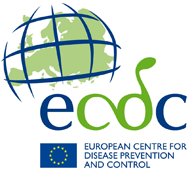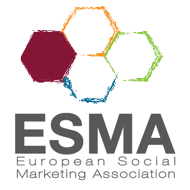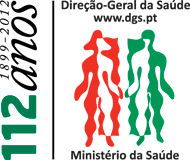Conference Programme
Conference theme:
Using Social Marketing to deliver effective and efficient citizen focused social programmes.
Conference aims:
- To act as a face to face meeting opportunity for everyone in the network and others who may be interested in social marketing.
- A mechanism to promote the association’s profile.
- A vehicle for capturing and spreading good practice.
- A mechanism to encourage and enable joint working on research and applied social marketing
Monday 26 November
16.00 - Social Marketing 101: optional introduction session
The European Social Marketing Association present a general introduction to social marketing – more details to follow.
Professor Jeff French presents a general introduction to social marketing.
Tuesday 27 November
09.00 - Registration and networking
10.00 - Welcome and official opening of the Conference - click for details
Dr Carlos Santos: Chair - Universidade Técnica de Lisboa. Technical University of Lisbon [download]
Francisco George Director General of Health, Portugal
Welcome to Portugal and opening of the conference.
Christiane Lellig Interim Coordinating Group
Welcome and aims of the conference from the ESMA.
10.20 - Opening Keynote Session - click for details
Professor Jeff French [download]
European Social Marketing Just a little bit different!
Professor Jeff French will present a paper that will argue that the application of Social Marketing within the European Context is essential to the development of more effective and citizen centric social programmes. Jeff will also consider some of the key macro, economic, social and cultural influences that are shaping the development of European Social Marketing. He will also consider the global Social Marketing family and some of the differences that appear to be evident across the world in terms of fundamental concepts and practice in social marketing. The presentation will end with an optimistic assessment of the contribution that Europe will make to developing social marketing as a tool for social development and equity.
Sara Balonas University of Minho, Portugal [download]
The third sector and the imperative of professionalization
The era of generous philanthropy has led to social responsibility strategies by companies, aligned with corporate values, but also guided by the confidence in the nonprofit organizations, concerning their capacity of effective social return. In order to capture the companies' attention and survive in a strongly disputed market, the third sector organizations need to learn the best management practices and corporate accountability.
Recently, we have been witnessing a growing professionalization in fundraising methods, in marketing and communication strategies, in partnerships with the public and private sectors and also in new financing models such as the Social Stock Exchange, a place to invest in social causes.
Understanding and sharing this new funding system in the field of nonprofit organizations can be a clue of new sustainability models for social institutions where social investors and social profit become part of the vocabulary.
11.15 - Refreshments, networking and post keynote discussions
11.45 - Breakout sessions - Choice of 4 breakout sessions each containing 2 presentations - click for details
Meriam Janssen Universiteit van Tilburg, Netherlands
Social marketing as a tool for alcohol prevention for adolescents aged 12 – 18 years.
Adolescents 12 - 18 years are divided into five segments ('ordinaries', 'high spirits', 'consciously sobers', 'ordinary sobers' and 'socials'), based on their attitude towards alcohol. This presentation describes the segmentation process and five segments found. Moreover, based on focus groups with 'ordinaries' and 'ordinary sobers', it will be discussed what they value about alcohol.
Héðinn Svarfdal BjörnssonDirectorate of Health, Iceland [download]
Health Promoting Secondary Schools in Iceland
The Icelandic Directorate of Health developed Health Promoting Secondary Schools. All secondary schools in Iceland are enrolled in the programme, making significant changes to cafeterias, offering novel opportunities for exercise, increasing the prominence of health in curricula, taking steps to improve well-being, improving access to services, and reducing the use and harm of tobacco, alcohol and drugs.
Fiona Spotswood University of the West of England, UK
The use and implications of ethnography for changing behaviour for social good
Bourdieu's habitus warns us that people do not know the significance of their own actions. Thus, ethnography is likely to be a more suitable methodology than direct questioning in social marketing research. Using two case studies, this methodology's potential will be explored, despite its ethical and theoretical critique.
Diogo Verissimo University of Kent
Branding Biodiversity: What environmental conservation can learn from social marketing
The Earth's natural capital is an asset that must be adequately managed. Human behaviour plays a key role in this and those involved in environmental conservation have for decades developed campaigns to change behaviour. Branding has been central to these campaigns, largely through iconic species like the panda and the whale. But what can conservationists learn from social marketing?
Portuguese Panel
- Cristina Costa, Directorate-General of Health, Portugal
Clean hands save lives Campaign
- Pedro Graça, Directorate-General of Health, Portugal [download]
Healthy Eating Online Platform – A Case Study
- Sofia Ferreira, Directorate-General of Health, Portugal [download]
Health Communication: New strategies in Portuguese Health Promotion
Ruth Marie Donovan Mphil, Advisor at Akershus University Hospital [download]
Community health promotion and social marketing, using students in real-life projects - Campaigning for better health for target audiences
Students can make a change in a real-life projects and become social marketers by using social marketing as the tool to mobilise change within a community. This presentation will inspire and provide ideas on how to mobilize a community to promote health through physical activity in a fun and rewarding way.
Susana Marques High Institute of Administration and Management, Portugal
New Priorities and New Competencies for Social Marketers
The shift from transactions to cultivating relationships demands new competencies from social marketers. They will have to approach the customer as behavioral scientists and with a more integrative view which requires, besides a deep understanding of marketing, sophisticated competencies in terms of data analysis and interpretation, design thinking and a broad training in social sciences. The shift to relationships has also deep implications in the metrics used to evaluate social marketing programs and in the very concepts of efficiency and effectiveness.
Carlos Oliviera Santos Technical University of Lisbon, Portugal
A National Social Marketing Strategy - A Cognitive Approach
This presentation is about an explanation approach based in a cognitive method of a policy process that led to the incorporation of social marketing in a national public policy, with the aim of improving social behavior change and well-being, developed through a case study research based in the British national social marketing strategy, initiated in 2004.
12.45 - Lunch and networking
13.45 - Keynote presentations - click for details
Chair - Pleuni Boelaars, STAMM, Netherlands
Dr. Stephan Dahl University of Hull. [download]
Tweet for Behaviour Change
Social media, and in particular user-generated media, offer a myriad of possibilities for enhancing the engagement of target audiences with social marketing campaigns. Social media, which enables easy and free content creation, is often seen as a cost effective way to promote social messages, engage users and inform stakeholders. But is all social media effective? What are the opportunities and challenges when using new media? And what lessons can be learned from past success stories on how to create an engaging social media campaign?
Hilda Akkermans National Account Manager, JOGG [download] [watch video]
Social Marketing for Youth at a Healthy Weight
JOGG is the movement for a healthy environment and a healthy youth. Everyone in a city, village or city district cooperates to make healthy eating and physical activity easy and attractive for young people (0-19 years). JOGG is based on EPODE, a French program where overweight was successfully tackled. The strategy is based on 5 pillars, of which Social Marketing is one.
In this presentation the overall program or JOGG will be presented, focusing on the implementation of Social Marketing strategies. How is Social Marketing being implemented on a national scale? And how on a local scale? One local pilot will be presented; on motivating Turkish and Moroccan mothers to give their children more water instead of sweet beverages.
14.45 - Open meeting of the new European Social Marketing Association
Co Chairs: L. Suzanne Suggs [download] and Clive Blair-Stevens.
15.45 - Speed networking session. Poster presenters get 2 minutes each to introduce their posters
16.15 - Refreshments and networking
16.45 - Open session for general meetings and formal viewing of the posters, Plus special workshop session - click for details
Health communication in prevention and control of communicable diseases in Europe.
Chair - Ms Andrea Würz from European Centre for Disease Prevention and Control:
Dr. Ülla-Karin Nurm; European Centre for Disease Prevention and Control [download]
What are the challenges and opportunities in translating health communication evidence into disease prevention practice?
Ms Laura MacDonald; Institute for Social Marketing, University of Stirling [download]
Is social marketing an effective approach to prevent and control communicable diseases in Europe – main findings from the literature review.
Mr Piotr Wysocki; European Centre for Disease Prevention and Control [download]
Can social marketing be used as a tool for risk communication in the context of measles elimination in Europe?
Dr. Irina Dinca; European Centre for Disease Prevention and Control [download]
What are the potentials and limitations in applying social marketing in communicating with poorly and hard to reach groups? Based on the example of Roma population and measles.
The main aim of the session is to acquaint participants with selected outputs of the ECDC and the Consortium project "Establishing a programme for dissemination of evidence based health communication activities and innovations on communicable diseases for country support in the EU and EEA/EFTA countries 2009-2012". Especially these aspects that pertain to collecting evidence on use of social marketing in prevention and control of communicable diseases in Europe. The session will also provide a forum for discussion on the effectiveness of social marketing for preventing and controlling communicable diseases considering availability of tools and techniques that support targeting interventions (and changing behaviours).
18.45 - Drinks reception & poster presentations
Wednesday 28 November
09.00 - Networking and fringe meeting session
10.00 - Keynote presentations - click for details
Chair - Suzanne Suggs BeCHANGE Research Group Institute of Public Communication (ICP) Faculty of Communication Sciences Università della Svizzera italiana
Professor Gerard Hastings [download]
The importance of evidence data and audience insight.
Prof. Doutor J. Paulo Moreira Universiade Nova De Lisboa [download]
Reflections on social marketing in Portugal
11.00 - Refreshments and networking
11.30 - Breakout sessions - Choice of 4 breakout sessions each containing 2 presentations - click for details
Suzanne Suggs BeCHANGE Research Group Institute of Public Communication (ICP) Faculty of Communication Sciences Università della Svizzera italiana [download]
How do you know when it is Social Marketing"? A comparison of assessment tools
In this presentation, we compare Andreasen's Benchmark Criteria and the newly developed Social Marketing Similarity Index (SMSI) in assessing the extent to which alcohol misuse prevention campaigns from Austria, Germany and Switzerland resemble social marketing. Recommendations for future research and practice are presented.
Paulo Jorge Alves Instituto Ciências da Saúde, Universidade Catolica Portuguesa [download]
Understanding the burdens of illicit drugs at school
Due to the multi-faceted environment in which adolescents are living we explored theory from Health Belief Model and analyse the drugs in school. Social marketing was the wire of process in the development of the project. This presentation illustrates a health planning, from needs assessment in a school context, the campaign of community intervention and its health gains.
Patricia McHugh National University of Ireland [download]
Shifting the Systems Dynamic from the Stone to the Bird: A Social Marketing Approach to the co-Creation of Science Policy
Social marketing is successful at linking individual exchanges to societal outcomes through behavioural change to action shared values. This presentation illustrates how policy co-ordination processes can overcome the linear 'stone' structure of power and control to the implementation of the adaptive 'bird' strategy, requiring broader systems of active and empowered partnerships, alongside social marketing network formations at every level "to facilitate not just behaviour change, but far-reaching social change" (Hastings and Domegan, in press, p.4).
Katie Collins University of the West of England, UK [download]
Poverty, power and politics: considerations for engaging citizens in social marketing programmes
Social marketers' interest in participatory methods is piqued. Exploring theory from Development Studies, we find that if those seeking to use participation to empower people to change do not attend to issues of inequality, power and politics they could fail and even harm those they are attempting to help.
Sinead Duane National University of Ireland [download]
A Social Marketing Partnership Framework
The social marketing partnership framework presented contributes to a comprehensive understanding of partnerships for social innovation in Irish society. By adopting such a framework social marketers are given guidance to enhance the instigation and maturation of transformational partnerships. Social marketers are also offered assistance in overcoming the challenges of multiple stakeholder collaborations. Although developed in the public health setting this framework is applicable in other broader contexts both nationally and internationally.
Barbara Jacennik The University of Finance and Management in Warsaw, Poland
The image of a social marketing programme vs. political campaigning – the case study of a programme promoting physical activity
A programme aimed at building sports fields for youth in the communities across Poland is an interesting illustration of the political context influence on the media image of a social programme. The results of a content analysis of the press coverage will be presented.
Rebekah Russell-Bennett University of Strathclyde, Matthew Wood Brighton University [download]
Services Thinking for Social Marketing
Social marketing programs are typically delivered using services however there is little evidence of 'service thinking' in the design, implementation and evaluation of these programs. Indeed the focus is almost exclusively on changing the consumer's behaviour instead of changing the one thing that can be controlled – the service environment, employees and delivery channels. This presentation will outline contemporary social marketing theories that can be useful for social marketers as well as use real life examples demonstrating the impact of service thinking on social marketing outcomes.
Marco Bardus Institute for Public Communication (ICP) Faculty of Communication Sciences, Università della Svizzera italiana [download]
Teaching social marketing using an innovative constructivist approach
The aim of the presentation is to share ideas for teaching social marketing at the university level adopting a constructivist approach. It will describe how we changed from previous years, our expectations and challenges in implementing the course, and a status report from 10 weeks into the 14 week course.
12.30 - Lunch and networking
13.30 - Conference debate - click for details
Topic:
The European approach to social marketing: What is emerging and how it might be different to other regions of the world. [download]
15.00 - Final plenary session followed by Q&A with all keynote presenters. - click for details
Chair - Marian Van Voorn, STAMM, Netherlands
Hugues du Plessis Proteines - Epode International Network, France
An effective social marketing campaign to reduce significantly childhood overweight prevalence in Belgium
Prof. Dr. Elisabeth Pott Director of the Federal Centre for Health Education and Health Promotion (BZgA), Germany
A National Prevention Programme based on Social Marketing Strategies: The German Campaign - "Alcohol? Know your limits"
[download] [watch "Disco" video] [watch "Party at Home" video] [watch "Decisions" video]
Alcohol is a key public health and social concern across Europe. Europe has the highest proportion of drinkers in the world, the highest levels of alcohol consumption per capita and a high level of alcohol-related harm. Germany is one of the heaviest alcohol-drinking nations in Europe with only around five percent of Germans abstaining from drinking. Binge drinking among youngsters has become a serious health problem in the last years leading to a constantly rising number of alcohol intoxications.
The campaign "Alcohol? Know your limits." is based on current social marketing strategies. The communication concept is multi-level and built on three pillars:
- mass communication to reach big audiences as a whole with easy, short messages,
- personal communication in many forms to address individuals and groups in a more specific way and
- online communication. To engage the target group the great potential of social networks is being used: With its own fan pages the campaign is willing to be part of the communication in social networks.
In order to measure the effects of the campaign and to optimise strategies representative surveys are conducted regularly. Outcomes show that the campaign is widely known and accepted: Over 90% of the target group know the campaign. Besides, binge drinking rates are beginning to drop – especially amongst youngsters aged 12 to 17 years.
16.00 - Close





